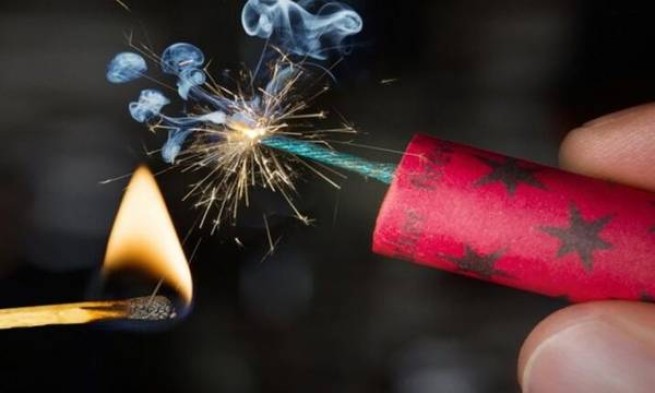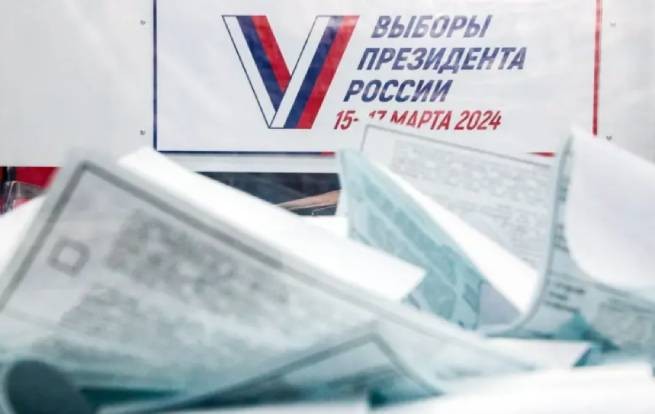On March 15, the first day of voting in the presidential elections in the Russian Federation, unusual situations occurred in a number of Russian regions.
Those who came to the polling stations threw Molotov cocktails or doused ballot boxes with green paint and ink. More than ten detainees are known to be facing criminal prosecution.
Attacks on polling stations occurred in different regions, tells dw. For example, in the Moskovsky district of St. Petersburg, a girl threw a Molotov cocktail at the sign of one of the precinct commissions. According to the chairman of the city election commission, Maxim Meiksin, police officers and the Ministry of Emergency Situations “quickly enough” extinguished the fire, and there were no casualties.
In Kogalym, Khanty-Mansiysk Autonomous Okrug, an elderly woman threw a bottle of flammable liquid onto the concrete floor of a polling station, the SOTAvision Telegram channel reports. The public page “Mytishchi Speaks” talked about an incident involving the arson of a voting booth in Mytishchi near Moscow.
An attempt to set fire to a firecracker was recorded at a polling station in the Chelyabinsk region, reports local publication 74.ru. Incidents of arson have also been reported in the Sverdlovsk region and Ivanovo. Green paint or paint is poured onto ballot boxes.
At several polling stations in Moscow, Novosibirsk, Voronezh and Rostov regions, as well as in Karachay-Cherkessia and Simferopol in Crimea, voters poured green paint, ink or paint onto ballot boxes. After similar incidents, as well as numerous cases of damaged ballots in Moscow and the Moscow region, they stopped allowing liquids into polling stations. According to Interfax, those who came to vote are now asked to leave bottles of water, juices and soft drinks at the entrance.
According to the calculations of the Telegram channel “Sirena”, it is known that 12 people were detained after arson or damage to ballot boxes with brilliant green or paint. The head of the Central Election Commission of the Russian Federation, Ella Pamfilova, threatened them with criminal cases.
The “authorities” of the part of the Kherson region seized from Ukraine announced two cases of shelling of buildings where voting took place. In Kakhovka there were no casualties, in Brilyovka a woman and a man were wounded. As photographs show, in particular from Donetsk, in the occupied territories voting is often carried out in the presence of armed military personnel.
Soon after the opening of polling stations, the first violations during the voting were recorded. The all-Russian public movement in defense of voters’ rights, Golos, reported “a huge number of voters under duress, the absence of observers and opposition to exit polls.”
The media point to widespread violations of the ban on campaigning, with portraits of the incumbent president running for a fifth term hanging at polling stations. In rare cases, after complaints from observers, they are curtained, reports Vestka.
Four candidates are participating in the elections: in addition to the current President Vladimir Putin, Leonid Slutsky from the LDPR, Nikolai Kharitonov from the Communist Party of the Russian Federation, Vladislav Davankov from the New People party nominated their candidacies. The Central Election Commission did not register a single independent opposition or anti-war candidate.
Meanwhile, on March 15, just after eight in the morning Moscow time – then the issuance of online ballots began in this time zone – the DEG platform stopped working. At least some users saw the message “the system is under load, please come back later” on the site and could not vote, writes Air Force.
The Ministry of Digital Development explained that the site crashed “due to high activity”: 200 thousand people voted in just an hour. The failure occurred due to an overload of the unified identification and authentication system, Oleg Artamonov, chairman of the territorial election commission of the DEG, clarified in a conversation with Kommersant. He attributed the problems to the fact that millions of voters used the system.
Elections are also taking place in the occupied territories of Ukraine. However, there, writes the BBC, people were forced to vote early, and election officials visited apartments with ballot boxes, accompanied by armed military personnel.
For the Kherson region, as for the rest of the new constituent entities of the Russian Federation, Russian media note, this is the first election of the head of the Russian state. Residents of the region will be able to vote directly at polling stations and at home. On the main voting days, March 15, 16 and 17, 61 stationary polling stations are open. Voting will take place from 8:00 to 16:00 local time. Earlier, Kherson Governor Vladimir Saldo called the Russian presidential elections a historic moment, calling on citizens to show civic responsibility and exercise their constitutional rights.
Meanwhile, Kyiv warns: “Those who vote under duress will not be held accountable to the law.” Ukrainian authorities claim that local residents are being forced to “vote”, assuring that they will not bear legal responsibility for this. The so-called “early voting” in Zaporozhye, Kherson, Donetsk and Luhansk regions began a few days ago. Ukrainian media, citing local residents, describe how Russian-appointed authorities are using carrots and sticks to create the appearance of high turnout.
Ivan Fedorov, head of the Zaporozhye region, says: “People are mainly asking how they can avoid voting, and if they are forced to vote anyway, how this is interpreted by Ukrainian law, and how they can report this to the Ukrainian authorities.”
Kyiv calls the elections in the occupied territories “fictitious” and calls not to recognize their results.







More Stories
A terrible tragedy in Kyrgyzstan: a truck hit 29 children at a festive event (video)
A 48-year-old Ukrainian was killed in Hungary
Paris: wild clashes between police and "black" block